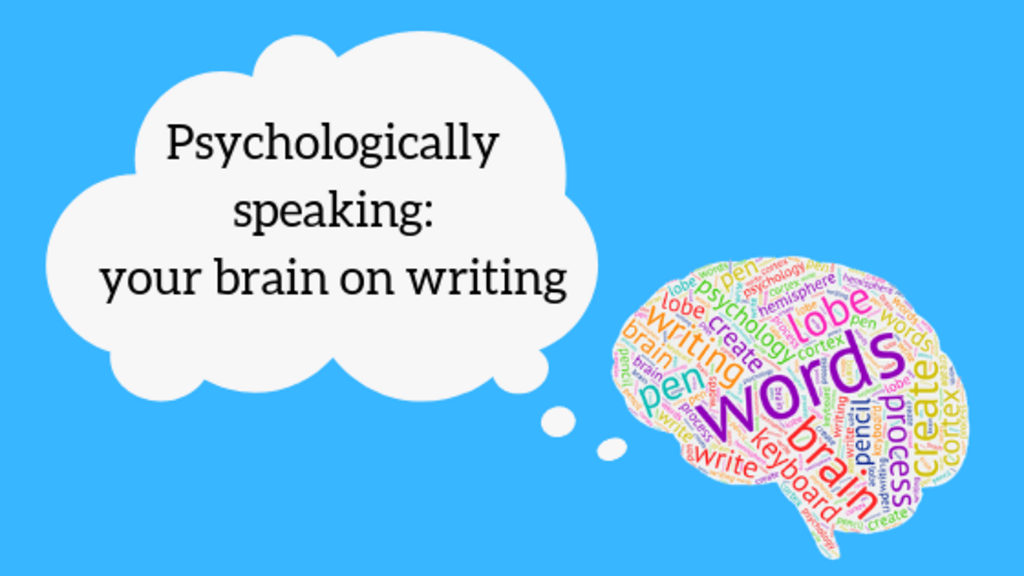Psychologically speaking: your brain on writing
Remember when you were little and just learning how to write? Just writing your name was a huge accomplishment. Yet with practice, it became much easier. The brain is not a muscle; although, in some ways it develops like one. The more you use it in a specific way, the more able it is to perform the task. So what is the brain actually doing while you write? The following are a number of brain areas that work together to form ideas and get them down on paper.
Frontal Lobe





